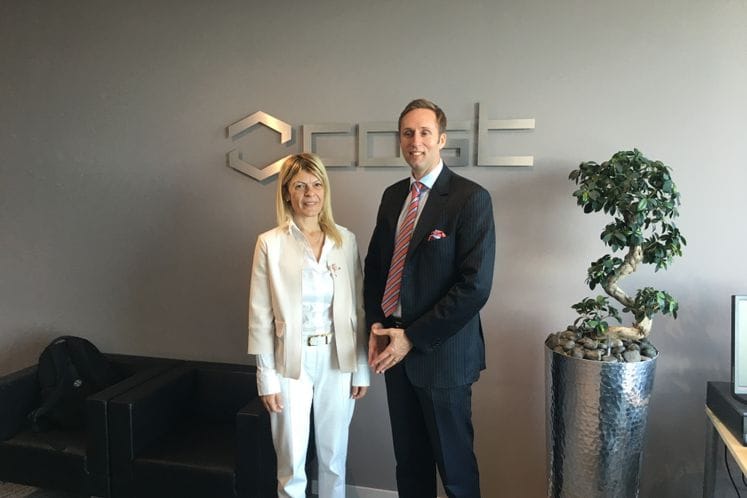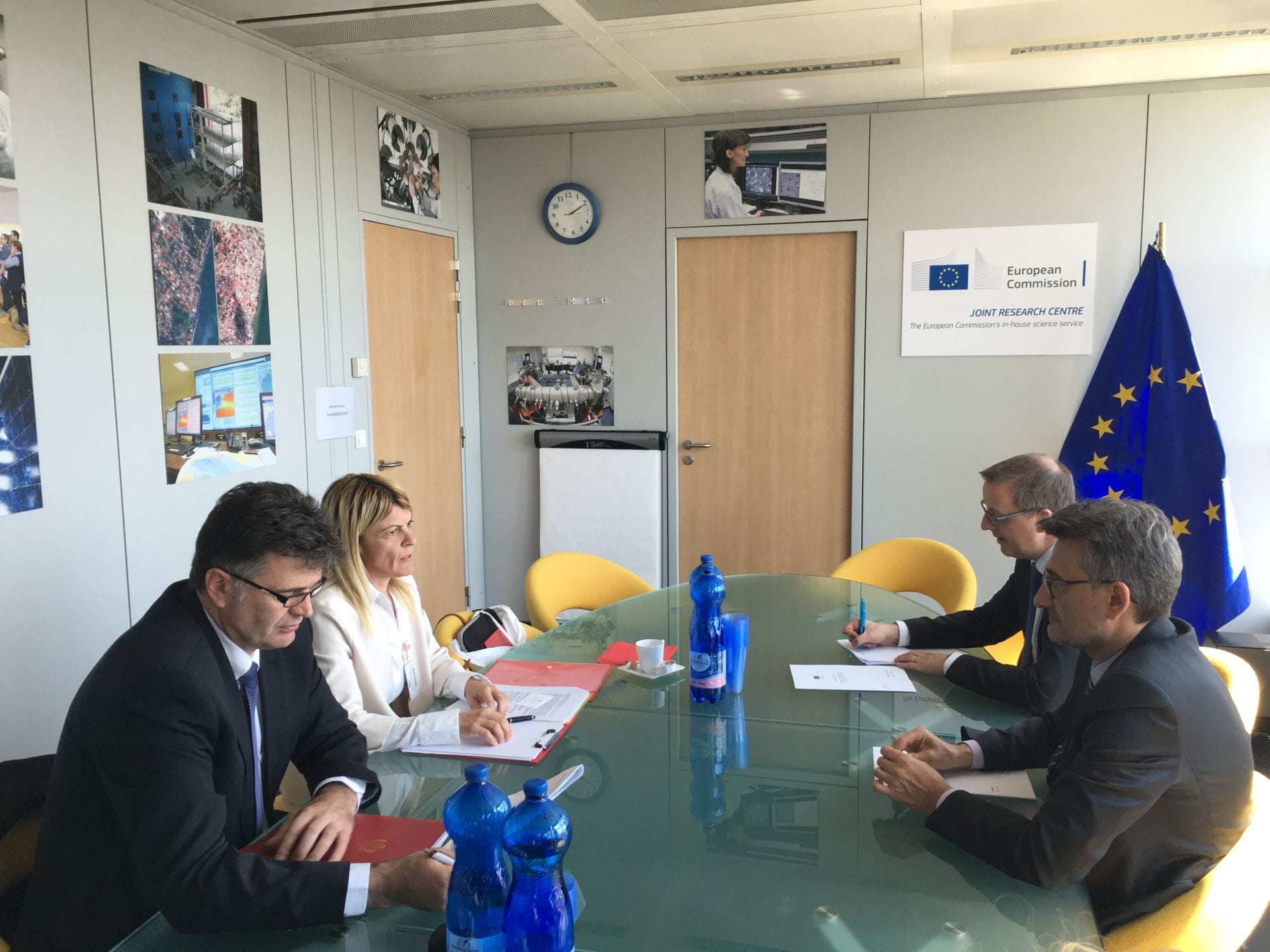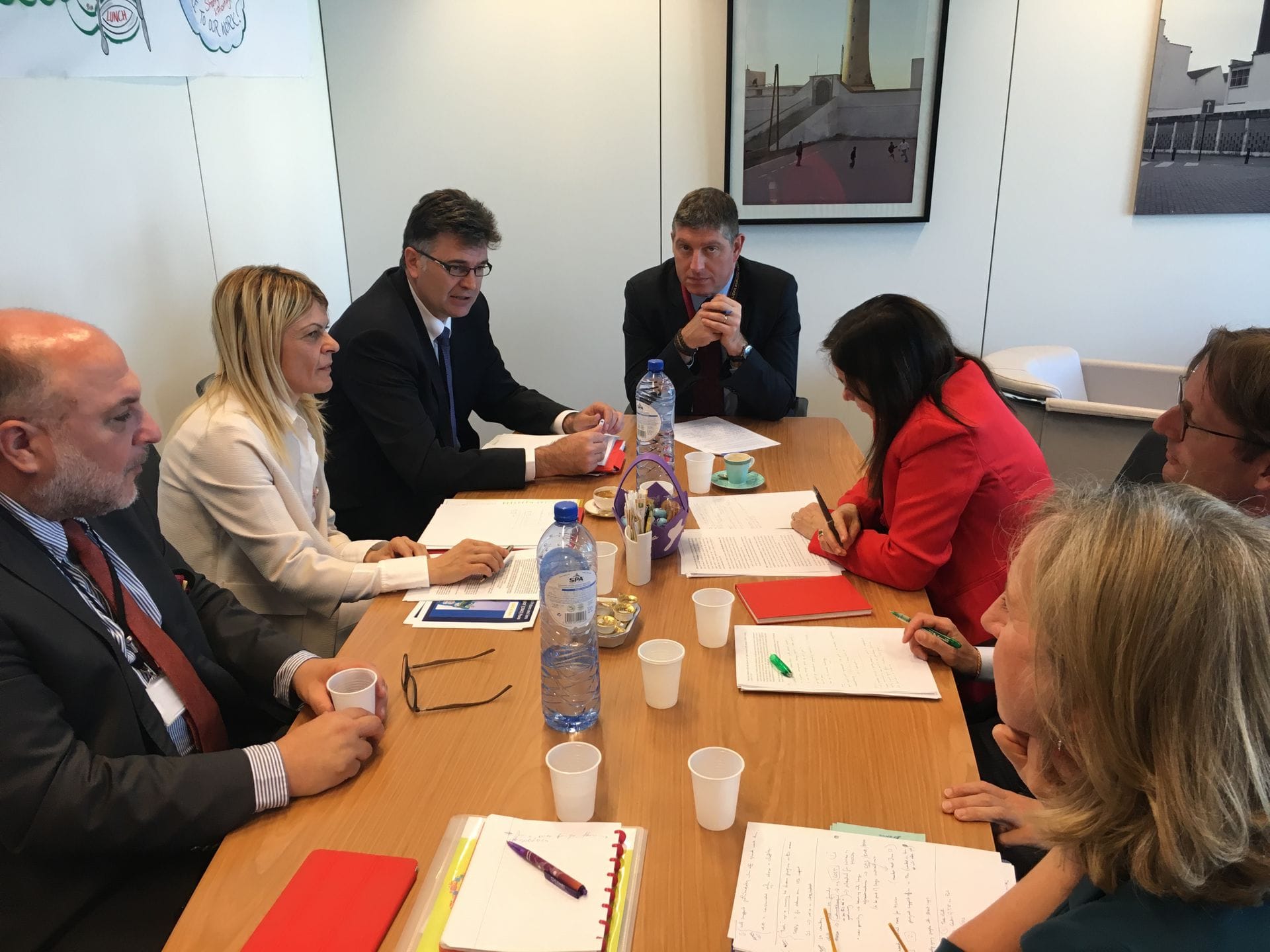- Government of Montenegro
Ministry of Education, Science and Innovation Minister Damjanović in the first official visit to...
Minister Damjanović in the first official visit to Brussels



The Minister of Science of Montenegro Dr Sanja Damjanović is paying her first official visit to Brussels today and tomorrow, where she will talk to the European Commissioner for Research, Science and Innovation Carlos Moedas and other relevant representatives of scientific institutions of the European Commission and the EU.
Today, Minister Damjanović met with Dr Ronald de Bruin, Director of the COST Association, the most popular EU programme for networking of researchers. Damjanović and De Bruin discussed very successful participation of Montenegrin scientific research teams in COST actions, as well as intensification of the cooperation and opening new opportunities for our teams, such as the ability to become holders of COST actions, not just partners in them. Possibility for Montenegro to host major events more often, with a view to strengthening ties among scientists, was also mentioned.
“Montenegro has become a full member of the programme in May 2015, since when a number of benefits for the scientific teams and individuals have opened. As of the beginning of this year, Montenegro participates in as many as 47 COST actions, of the total of 273, which is a remarkable result”, said de Bruin and promised support to enable this trend to continue.
Director de Bruin has accepted the invitation of Minister Damjanović to be present at the next COST info day, planned as part of this year’s Open Science Days festival. The COST programme does not fund research directly, but the budget of the programme is aimed directly at the cost of support and cooperation of various institutions in a COST action (project), such as the costs of organizing workshops, summer training schools, short-term scientific visits, etc.
“An average action” includes about 25 countries, with an annual budget of around EUR 150,000 and lasts four years. The exchange of knowledge and experience offered by COST is of great influence on the further pooling of teams in larger projects such as H2020, de Bruin and Damjanović stated.
On the first day of the visit, Minister Damjanović also met with Genoveva Ruiz Calavera, Director for the Western Balkans at the Directorate-General for European Neighbourhood Policy and Enlargement Negotiations of the European Commission (DG NEAR), discussing the recently presented initiative to establish an international institute for sustainable technologies in the Balkans. Damjanović familiarized her counterpart with the importance of this initiative.
“This project is of interest not only for Montenegro, but for the entire Balkans, regardless of the where in the region the institute would be located, and such a project could achieve multiple effects”, said the Minister.
It has been recognized that it is necessary to concentrate on one large, new institute, based on the latest technologies, which would allow the so-called “first class research”, where everyone would work together, because this is the only way to achieve the primary mission of “Science for Peace”. Minister Damjanović presented a concrete preliminary scientific design of the institute and emphasized that she was aware of the fact that the EU had been seeking a good and serious project that would in a way “revive” the Western Balkans and bring the region closer to the rest of Europe for years.
Given that the Directorate-General for Neighbourhood and Enlargement Negotiations (DG NEAR) manages the Berlin process, whose aim is to support projects for the prosperity of the Balkans, Damjanović presented this initiative as one of the projects that should be analyzed by the EC structure in the next cycle.
Director Calavera said that this was a very interesting and serious project and that DG NEAR would consider the initiative at all levels in the coming period, commending at the same time the leadership position of Montenegro in the integration process and this pioneering project in the field of science and research. She said that this was exactly the Balkans that Europe wanted to see – innovative, proactive, a region in which “science excellence” would be funded in future. In addition to this initiative, the topics discussed included the results achieved so far by the Ministry of Science in terms of H2020, plans for the future, as well as IPA and TAIEX support, where the relevant projects were considered that could expect the support through these structures in the coming period.
Minister Damjanović also met with Vladimír Šucha, Director-General of the Joint Research Centre of the European Commission, the central institution to support the development of Smart Specialization Strategy – S3, one of the most important documents in science policy, to be prepared by Montenegro no later than the middle of next year. The Minister pointed out that Montenegro was very aware of the importance of this document and that its development in the coming period would be one of the priorities of the Ministry of Science.
Director General of the Directorate for Scientific Research Activity Darko Petrušić, who leads the process of establishing S3 Strategy at the level of the Ministry of Science, presented the steps already taken by Montenegro on the establishment of this document. Director Šucha provided useful guidance and announced the inclusion of Montenegro in the group of countries that had already begun work on the Strategy, which would imply participation in all workshops and conferences, trainings and expert visits offered by JRC in the development of S3.
On the second day of the visit to Brussels, Minister Damjanović will meet with Carlos Moedas, European Commissioner for Research, Science and Innovation, Robert Jan Smits, Director-General of the Directorate General for Research and Innovation and Jean-David Malo, Director for Open Innovation and Open Science in Directorate-General for Research and Innovation.
